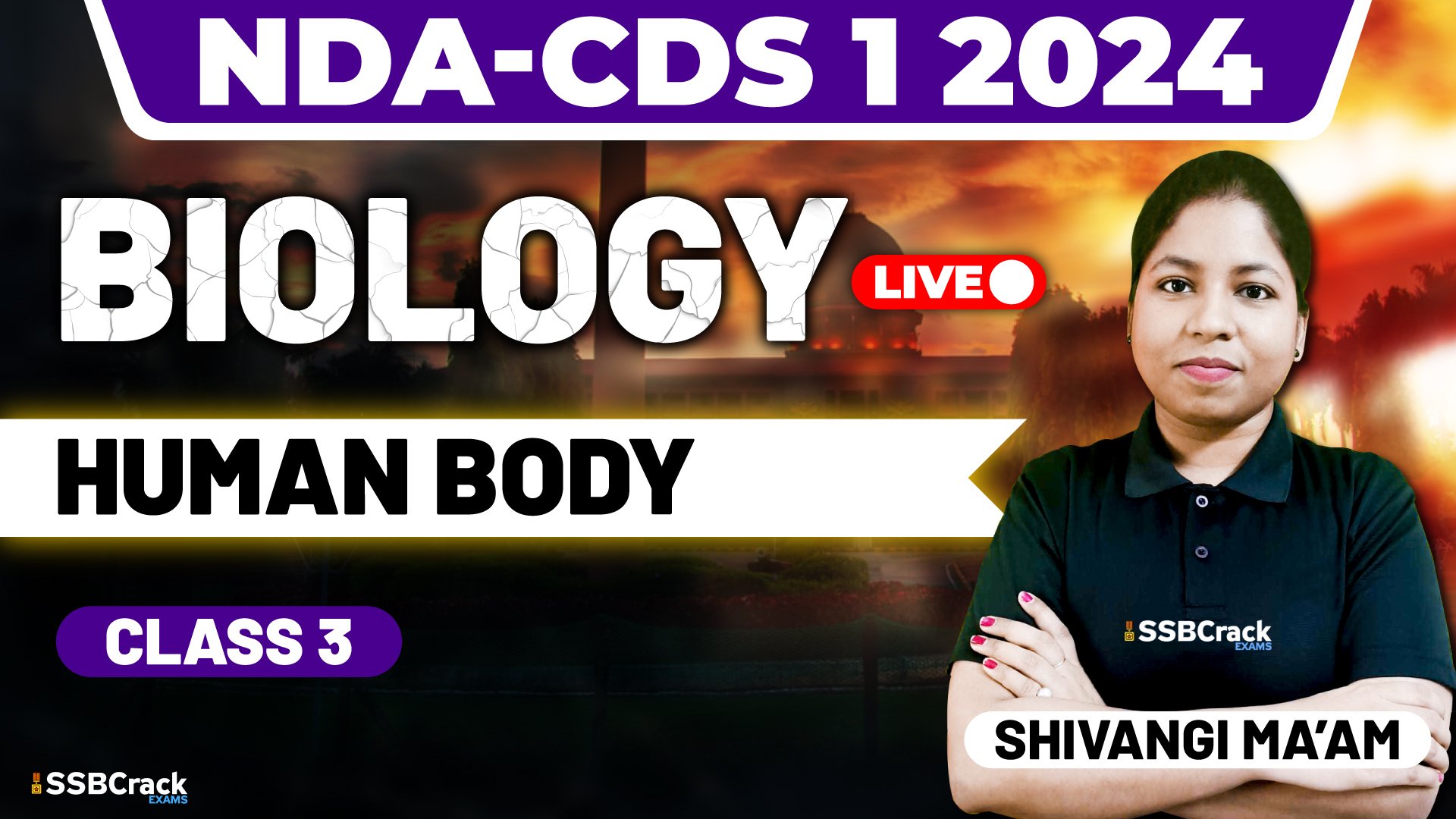The National Defence Academy (NDA) and the Combined Defence Services (CDS) exams are highly competitive and prestigious examinations for aspirants looking to pursue a career in the Indian Armed Forces. In these examinations, the depth of knowledge and understanding of various subjects is crucial. Two important biology topics that hold significant importance for NDA & CDS exams 2024 are the Reproductive System and Locomotion and Movement. In this article, we will explore the significance of these topics and why aspirants should pay close attention to them.
The Reproductive System:
The study of the reproductive system is a fundamental aspect of biology, and it plays a vital role in the NDA & CDS exams for several reasons:
- Medical and Health Assessments: One of the stages of selection in these exams involves thorough medical examinations. A basic understanding of the reproductive system is essential for aspirants to clear these assessments and ensure they meet the necessary health standards.
- Knowledge of Human Anatomy: Understanding the reproductive system is crucial for grasping human anatomy and physiology. This knowledge is invaluable for aspiring officers who may need to make critical decisions during their service, especially in medical, emergency, and humanitarian roles.
- Awareness of Health and Hygiene: Armed forces personnel need to maintain high standards of health and hygiene. Knowledge of the reproductive system helps candidates make informed choices regarding their personal well-being and helps them educate and guide others on the importance of reproductive health.
- Ethical and Social Implications: As future leaders, officers are expected to be well-informed about sensitive issues related to reproduction and family planning. The NDA & CDS exams often include questions on ethics and social responsibility, making a comprehensive understanding of the reproductive system crucial.
Locomotion and Movement:
The topic of locomotion and movement is equally significant for NDA & CDS aspirants:
- Physical Fitness: Military life demands physical fitness and agility. Understanding the mechanics of locomotion and movement is essential for maintaining physical prowess and preventing injuries during training and service.
- Tactical Knowledge: Officers need to be familiar with how the human body moves to strategize and execute combat tactics effectively. Knowledge of biomechanics and kinematics is beneficial in planning and executing military operations.
- Injury Prevention: Soldiers often engage in physically demanding activities. Understanding the science of movement can help in preventing injuries, ensuring soldiers are always at their best for duty.
- Leadership Skills: As future officers, candidates need to lead by example. Demonstrating physical prowess and an understanding of movement principles can boost the confidence and trust of their subordinates.
Conclusion:
The Reproductive System and Locomotion and Movement are not just biology topics but integral aspects of the knowledge base required for NDA & CDS aspirants. These subjects have far-reaching implications for both the medical assessments and the overall preparedness of future officers in the Indian Armed Forces.
Aspiring candidates should take the time to study these topics comprehensively, as they not only enhance their chances of success in the exams but also prepare them for the physical, medical, and ethical demands of a career in the military. A well-rounded understanding of the reproductive system and movement mechanics will not only help them pass the exams but also make them better-rounded and more effective future leaders in defence services.







